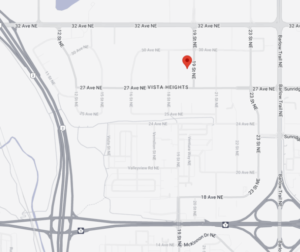A Will is the legal statement of a person’s last wishes about how to divide his or her property after death. The property that is distributed following the instructions in a Will is known as the estate. When you make a Will, you are known as a testator. The person you put in charge of carrying out your wishes as expressed in the will is most commonly referred to as the personal representative.
There are two different kinds of wills, each with its own rules and requirements:
- The “formal” (or “attested”) kind, which must be typewritten or printed (not in handwriting) and signed by the testator in the presence of 2 witnesses.
- The kind that you hand write completely. Handwritten Wills are called holograph wills. They are legal in Alberta, Manitoba, Saskatchewan, Ontario, Quebec, New Brunswick and Newfoundland and Labrador.
What happens if you don’t have a Will?
If you die without a Will, you are said to die intestate. In this situation, the Estate Administration Act will dictate who can apply to be your personal representative and how your estate is distributed. Once an individual applies to be the personal representative of your estate, they must distribute your estate according to the hierarchy laid out in the Estate Administration Act (which goes from spouse, to children, to parents, to siblings, to grandparents, to aunts and uncles, and to great grandparents).
Why should you have a Will?
- You can choose who will administer your estate.
The person you appoint to administer your estate is most often referred to as your “Personal Representative”. We recommend that you choose someone that you can trust and ask your proposed Personal Representatives if they are prepared to act in the administration of your estate prior to preparing your Will.
- You can appoint a guardian for your minor children.
The Courts are not bound to accept the guardians appointed in your Will, however, the wishes of the parent are generally respected. In the matter of guardianship, the Courts consider the best interests of the children.
- You can decide who will benefit from your estate.
Your Will sets out the details of who will benefit from your estate. You can make specific bequests, include a direction for your Personal Representative to distribute specific items in accordance with a memorandum that you have prepared or will prepare at a later date or deal with all your property in more general terms. You can also designate when beneficiaries will receive their share of your estate.
What can I do to reduce the risk that my estate will be successfully challenged?
- Ensure that you provide for your dependents.
Your Will should provide for the proper maintenance and support of your dependents. If it does not, the Courts, upon the application of one or more of your dependents may overturn your Will.
- Make your Will while you have the mental capacity
The longer you wait to make your Will the greater the risk that you could be a victim of brain disease, stroke or suffer impairment to your cognitive functions. Do not risk having your Will challenged on the basis that you did not have the mental capacity to understand the nature and effect of your Will.
How often should I review my estate documents?
You should review your existing Will every 5 to 10 years and anytime there are any significant changes in your life, such as the birth or death of a family member, the death of a named beneficiary, guardian or Personal Representative, or the acquisition or disposition of property or a business.
How do I start planning for my future?
If you need assistance with any of your estate documents, or would like more information, please contact one of our lawyers for a consultation.




